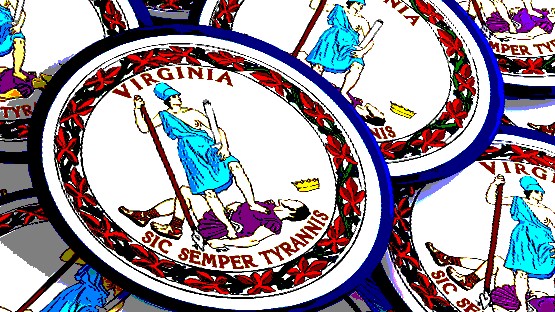
“Is there any doubt that American leadership will be just as important in the future as it has been in the past?” said Kaine. “We are uniquely positioned to play a critical leadership role in addressing the many challenges that the world will face, but we must acknowledge that America cannot play the leadership role we are destined to play if we are divided against ourselves. That is the choice before us today as we think about the choice made here at this place 150 years ago.”
In the Senate, Kaine has advocated for preserving Civil War sites in Virginia, recently introducing legislation to expand the Petersburg National Battlefield. At the end of last year, legislation Kaine introduced to reauthorize the Civil War Battlefield Preservation Program (CWBPP) became law as part of the National Defense Authorization Act (NDAA) of 2015.
Following his address in Appomattox, Kaine traveled to Lynchburg where he met with local African-American leaders to discuss issues facing the community.
Tomorrow, Kaine will cap his five-day tour of the Commonwealth with stops in Hampton Roads.
Full transcript of Kaine’s remarks at Appomattox is below:
Good morning. I am honored to be here with you today, joined by two congressional colleagues – Congressman Hurt and Congressman Goodlatte. As Governor and Senator, I have worked with these colleagues and others to preserve our nation’s Civil War battlefields so that future generations can learn the great lessons of the War and how it shaped our nation. And there is no more sacred Civil War battlefield than the spot where we now meet. Other places were the sites of more momentous battles. But it is here, at Appomattox Courthouse, where the battles ended and a divided nation chose a path of unity, a choice that would profoundly change not only our own history, but the history of the world. We come to honor that choice and to acknowledge that the same choice lies before us now.
America, from its founding until April 9, 1865, had a deep internal contradiction, recognized by Jefferson and other Founding Fathers, between liberty and slavery. That contradiction, in which both North and South were complicit, grew until its terrible gravity warped virtually every aspect of national life. And the war came.
Four years of war, of unprecedented death and destruction, were visited upon our land and our ancestors. And Virginia felt the hand of war more intimately than any other state. But in this place, named for the Algonquin tribe that inhabited the region, we also provided a home for the birth of a far-reaching peace.
It was here that leaders negotiated a magnanimous surrender. It was here that battle-scarred soldiers laid down arms, saluted each other’s’ bravery and began their journeys home. It was here that General Lee, seeing Seneca Indian Union Officer Ely Parker, commented, “It is good to have one real American,” only to hear him respond, “Sir, we are all Americans.” We are all Americans.
The unification of the nation that began at Appomattox – a unification not based primarily in victory but instead in a commitment toward the universal humanity of all – is not complete. For all our progress in our quality of life, material wealth, scientific advancement and global influence, we are painfully aware each day of broad inequities among our people. In our United States, there are still obvious divisions based on race, ethnicity, gender, national origin, religion, sexual orientation, political affiliation, red-state and blue-state and region. America in 2015 is not as sharply split as during the time of the Civil War, but anyone watching the news knows that we are too divided. Each of us knows personally that we can do better. We also know that our failures are not an indictment of our national ideals, but instead of our very human inability to fully live up to them.
But, with humble acknowledgment of our faults, we must also recognize that the unification begun here one hundred and fifty years ago has been transformative. Within a few generations after Appomattox, the United States had the largest economy in the world, the most powerful military in the world and a confident global position as a diplomatic force for good. None of this would have been possible had we stayed a divided nation, split into two by a fundamental dispute about human equality.
Unknown to all who were here on April 9, 1865 was the fact that the future of the world depended upon a united America. It was America a few decades later that decisively entered the Great War to bring peace to an exhausted Europe. It was America that helped defeat global forces of fascism – warped by their own doctrines of racial superiority – in the Second World War. It was America that built a new order based on international institutions and rules protecting individual liberty and national sovereignty. It was America that helped shine the spotlight of truth on the dictatorial nature of Soviet communism, thus hastening its collapse. Throughout the 20th century and even with all of our human missteps, we played and play a major role in the advance of mankind across the globe in ways that would not have been possible had we not begun our national unification here at Appomattox.
Indeed, even the magnanimous nature of the surrender here—with soldiers from the North and South showing respect to each other and Confederates allowed to return home undisturbed with horses and, in some cases, weapons – set a pattern of magnanimity that has defined our subsequent history. After World War I, President Wilson tried to help victor and vanquished alike through establishment of the League of Nations, not because America needed it, but because the idea—ahead of its time—offered a better future for all of mankind. After World War II, America rebuilt the economies of its 2 principal enemies – Germany and Japan – through the Marshall Plan. These nations today are among our strongest allies.
The great effort of two of my colleagues, Senators John McCain and John Kerry, to normalize relations with Vietnam, 20 years after a war that cost 58,000 lives, has produced a close alliance between our two countries and provided an opportunity for veterans of that era to find better closure to their wartime service. Each of these gracious efforts of magnanimity at the close of war had their roots here in the spirit of Appomattox. And one lesson of this place – that an enemy need not always remain an enemy – continues to offer cautious hope even today as we contemplate new relationships with difficult historic adversaries such as Cuba and Iran.
Simply put, while all here 150 years ago understood the surrender was momentous, none could have imagined how the actual event, the reunification of our nation, would mean to the future history of the entire world. And that thought must challenge us today.
Is there any doubt that the 21st century will offer challenges to mankind as significant as those faced in the last century? We already see these challenges in the aggressive activities of authoritarian nations, the spread of non-state terrorist jihadism, and the expansion of technologies that intrude more deeply into our personal lives than ever in our history. At home and around the world, and despite our progress, old problems persist and new challenges proliferate.
Is there any doubt that American leadership will be just as important in the future as it has been in the past? With our ingenuity, our strength, our diversity and democratic principles, our vibrant and creative entrepreneurial culture, we are uniquely positioned to play a critical leadership role in addressing the many challenges that the world will face, but we must acknowledge that America cannot play the leadership role we are destined to play if we are divided against ourselves. That is the choice before us today as we think about the choice made here at this place 150 years ago.
So will we look for new opportunities to lay down arms – physical, verbal, spiritual – and unify one with another? The call of President Lincoln, slain a few days after the surrender here, still must be our call: “With malice toward none, with charity for all, with firmness in the right as God gives us to see the right, let us strive on to finish the work we are in, to bind up the nation’s wounds, to care for him who has borne the battle and for his widow and his orphan, to do all which may achieve a just and lasting peace among ourselves and with all nations.”
Thank you.










